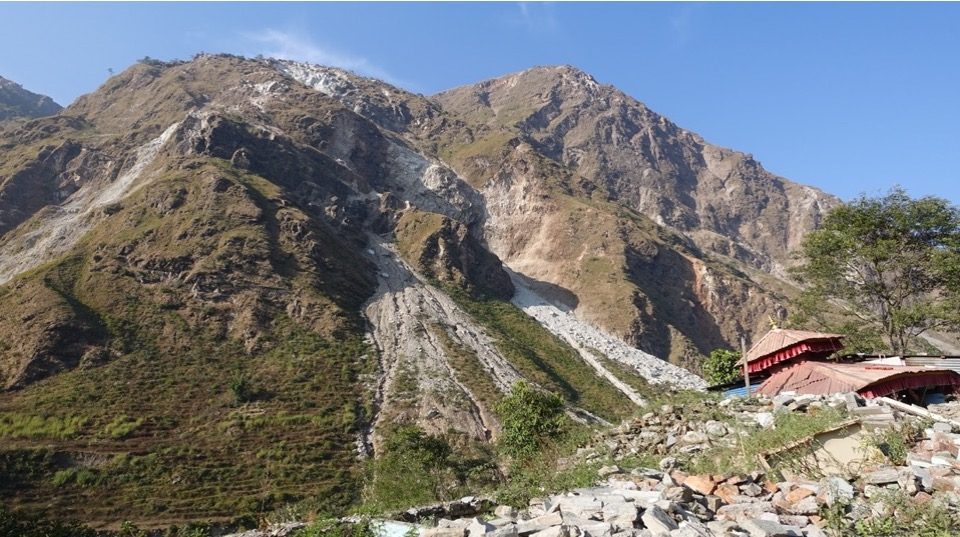Building resilience to earthquake and landslide hazard in Nepal
Earthquakes and their associated secondary hazards, such as landslides, are a major and recurring threat to lives and infrastructure in mountainous countries like Nepal. Whilst the shaking during an earthquake can trigger many thousands of landslides, as was witnessed after the devastating 2015 Gorkha earthquake in Nepal, the continuing impacts of landsliding can persist for far longer. Durham University research on earthquake and landslide hazard has been used to inform the preparedness planning for earthquakes and landslides in Nepal, and was put into practise in guiding the humanitarian response and reconstruction after the 2015 Gorkha earthquake. The research, involving Professor Nick Rosser and Professor Alex Densmore, generated critical geospatial data, mapping where landslide impacts were located and modelling who was potentially at risk in the future (see: video). The research produced the only comprehensive assessment of landslides that occurred during and after the earthquake, a dataset which has been sustained and updated ever since. These data have underpinned the nationwide geohazard assessment which informs projects focused on relocation and reconstruction efforts led by the Government of Nepal. One example is the UK FCDO-funded project ‘Durable Solutions’ which has specifically focussed on providing support to geohazard affected communities since the earthquake: http://durablesolutionsnepal.org/. In planning for the next earthquake, Durham-led research has also developed an innovative ensemble of earthquake scenarios. These scenarios help to assess the likely scale and geography of future earthquakes impacts, which is essential for preparedness planning. The scenarios are now utilised by the United Nations, the Government of Nepal, and major international NGOs to underpin the national earthquake Emergency Response Preparedness Plan, which provides the basis for the response to the next major earthquake. This integration of science and humanitarian planning is unique among UN-led disaster preparedness efforts worldwide.
Staff links
Prof. Nick Rosser https://www.durham.ac.uk/staff/n-j-rosser/
Prof. Alex Densmore https://www.durham.ac.uk/staff/a-l-densmore/

Impacting the World
Our research across human and physical geography addresses pressing global challenges through projects focused on delivering social and environmental benefits.
Virtual Library
Much of our research takes final form in high-impact articles or books. But a considerable amount of our activity takes place in other mediums.
Postgraduate Study
Postgraduate study at Durham helps you to develop a range of high-level research, analytic, and communication skills that are transferable to multiple career paths. Our postgraduates are highly valued employees in government, third sector and private agencies, as well as academia.
Contact Us
Founded in 1928, the Department of Geography at Durham University is one of the leading centres of geographical research and education in the world.
Department of Geography
Postgraduate Study
Durham University
Lower Mountjoy
South Road, Durham
DH1 3LE, UK
Tel: +44 (0)191 33418000


/prod01/prodbucket01/media/durham-university/departments-/geography/Matt_Couchmann-3872X1296.JPG)





